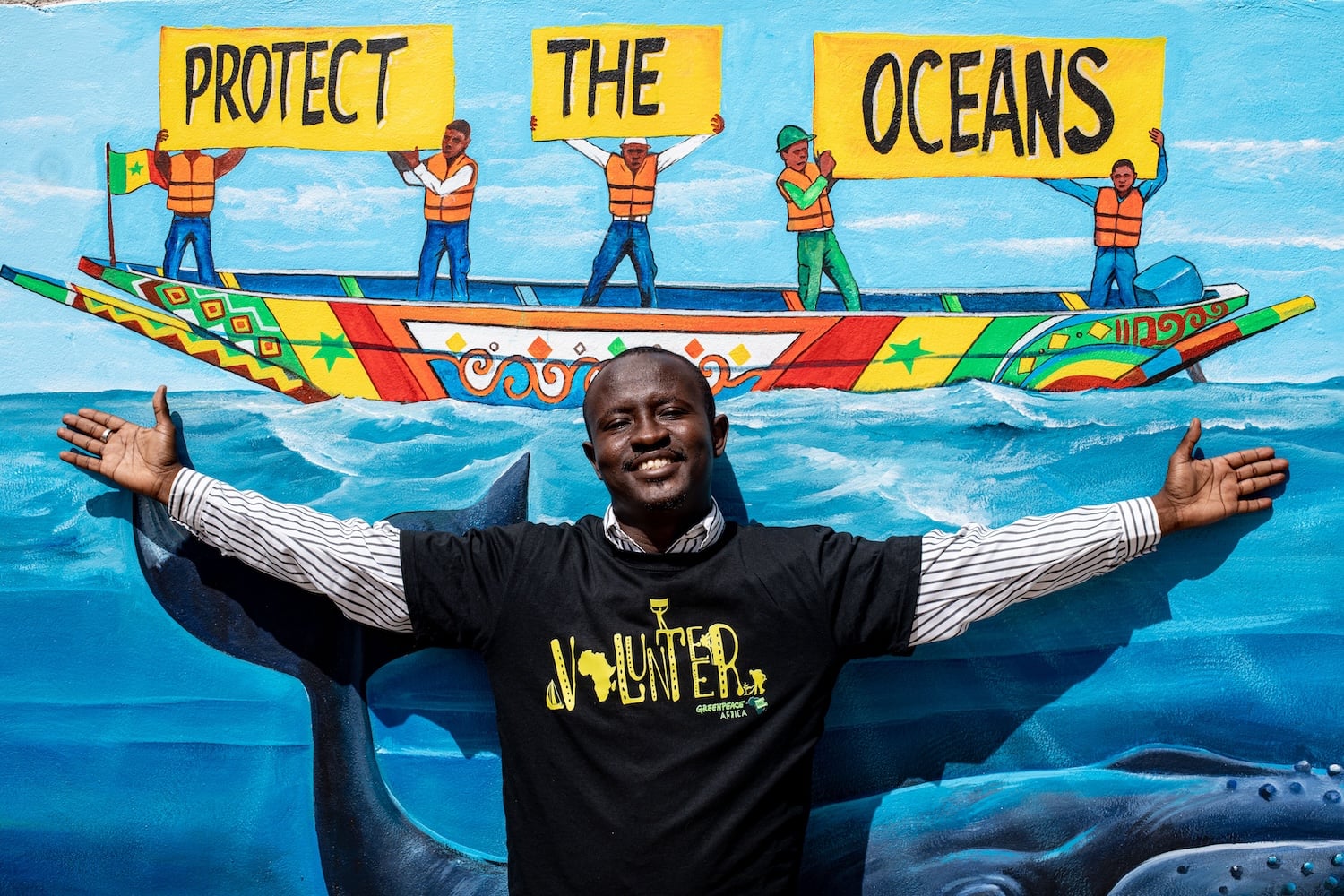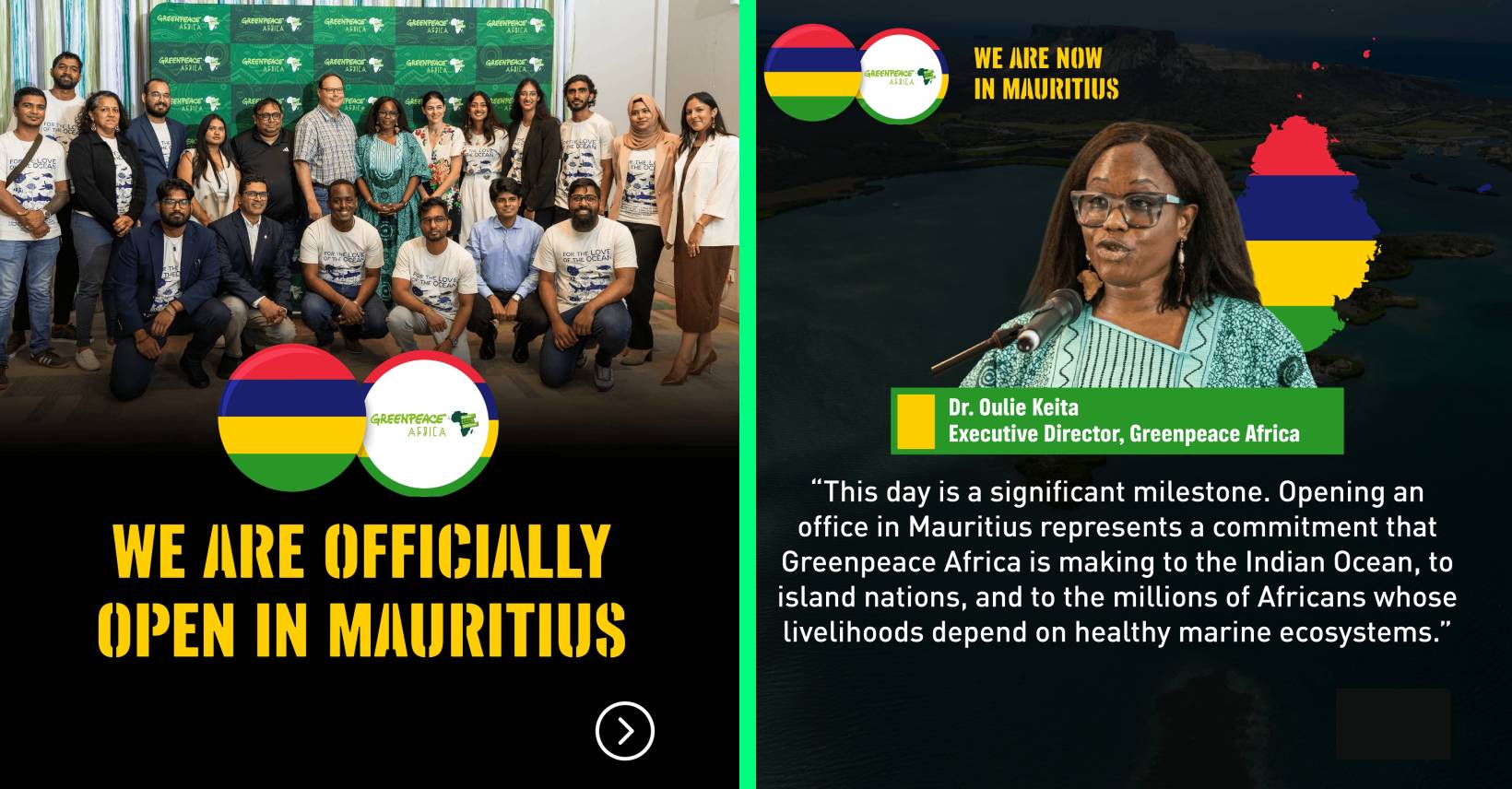Protesters demand 5 trillion-dollar payment from fossil fuel executives at “African Exploitation Week”
Photos and video: (download here)
Cape Town, 30 September 2025 – Police removed and dragged away climate activists who had chained themselves to a giant green payment machine outside the Cape Town International Convention Centre this morning, as the protesters demanded oil and gas executives pay trillions in climate damages at what they’re denouncing as “Africa Exploitation Week.”
Several activists in orange jumpsuits were seen being physically dragged across the pavement by multiple officers while shouting “Polluters Must Pay! You owe us a Climate Debt!” as delegates from TotalEnergies, BP, Chevron and other fossil fuel giants entered African Energy Week, the continent’s largest oil and gas gathering.
The dramatic scenes unfolded as activists attempted to blockade the entrances to the venue, as the pay machine unfurled a long bill featuring the cost of climate disasters worldwide since the Paris Agreement, amounting to $ 5 trillion. However, police quickly moved to remove protesters who were chained to the massive payment machine, which they also carried away from the entrance. As officers dragged activists away, one protester could be heard bellowing “Polluters must pay! You owe us a climate debt!” while conference delegates in business suits walked past into the venue.
“While police shield polluters at the expense of the people, African communities continue paying the ultimate price for fossil fuel extraction with their lives and livelihoods,” said Sherelee Odayar, Oil and Gas Campaigner at Greenpeace Africa, as she watched fellow activists being removed. “This giant bill represents the true cost of fossil fuel extraction that oil executives have been dodging for decades, and today’s heavy-handed response shows exactly whose interests are being protected.”
The payment machine featured a screen displaying clips from Greenpeace Africa’s documentary “Surviving The Aftermath, Who Pays?”, connecting extreme weather events like last year’s deadly Durban tornado to fossil fuel-driven climate change. The action targets executives from TotalEnergies, BP, Chevron, Woodside Energy, and the African Energy Chamber as they attempt to enter the venue for what activists are calling a week-long celebration of African exploitation disguised as energy development.
The protest followed a covert overnight operation where activists infiltrated hotels housing conference delegates, slipping climate justice flyers under hundreds of doors to deliver an early wake-up call about fossil fuel accountability before executives even arrived at the venue.
“African Energy Week is really African Exploitation Week – a gathering of corporate vultures circling our continent’s resources while ignoring the renewable energy solutions Africa desperately needs and abundantly possesses,” said Cynthia Moyo, Climate and Energy Campaigner at Greenpeace Africa. “Africa has some of the world’s greatest solar, wind, and geothermal potential, yet these corporations want to lock us into yet more decades of fossil fuel dependence that benefits their shareholders while poisoning our communities.”
The action comes as Africa faces escalating climate impacts, from devastating floods in South Africa to prolonged droughts across East Africa, while the continent contributes less than 4% of global emissions but suffers disproportionately from climate consequences.
“The extractive industry has treated Africa as its personal ATM for centuries, extracting wealth while leaving pollution, poverty, and climate chaos in its wake,” Moyo continued. “It’s time for a just transition to renewable energy that serves African people, not foreign profit margins.”
The giant payment machine symbolises the mounting climate debt owed to vulnerable communities worldwide, with activists demanding immediate implementation of a global Polluter Pays Pact to fund climate adaptation and loss and damage compensation.
“Today’s action and heavy-handed police response will not stop our resolve. Oil executives and their police protection can silence us today, but they cannot hide from the trillion-dollar climate debt they’ve created. The bill is past due. World leaders face the choice: make polluters pay or watch the planet burn,” concluded Odayar.
The protest connects to broader global climate justice campaigns demanding fossil fuel companies pay for loss and damage caused by their projects, with similar actions planned worldwide ahead of COP30 negotiations in Brazil.
ENDS
NOTES TO EDITORS:
- Africa Energy Week is the continent’s largest oil and gas conference, hosted annually in Cape Town
- Africa contributes less than 4% of global carbon emissions but faces some of the worst climate impacts
- The continent possesses vast renewable energy potential, with solar resources alone capable of powering global energy needs multiple times over
- Clips from the documentary “Surviving The Aftermath, Who Pays?” may be used with credit to Greenpeace Africa.
For Media Inquiries, Contact:
Ferdinand Omondi, Communication and Story Manager, Greenpeace Africa, +254 722 505 233, [email protected]
Greenpeace Africa Press Desk: [email protected]



